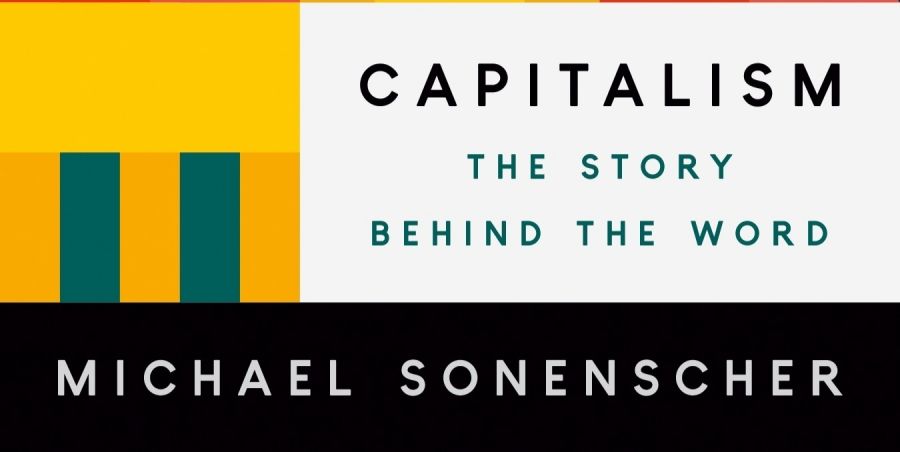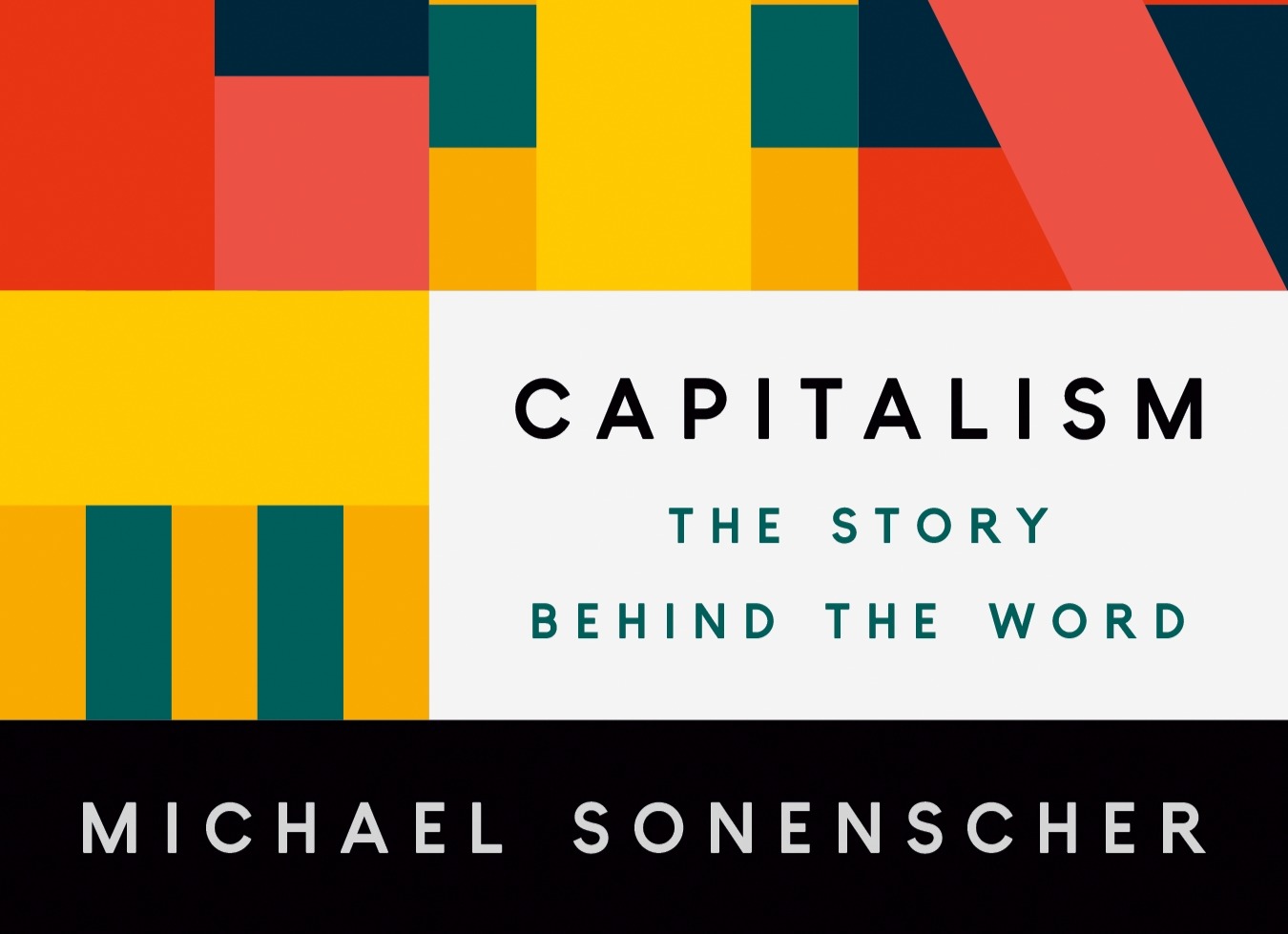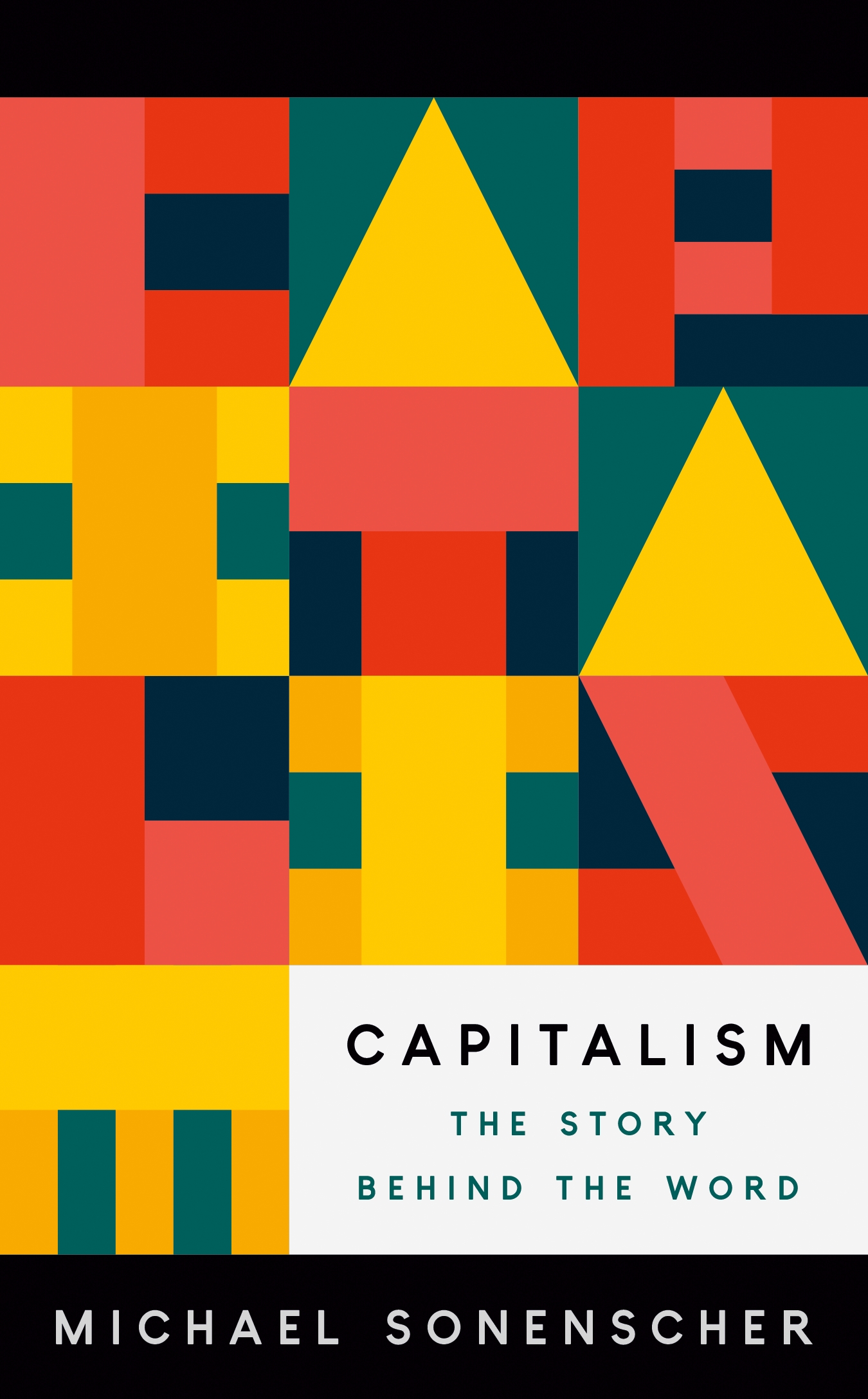
- Free Article: No
- Contents Category: Economics
- Review Article: Yes
- Article Title: Fighting words
- Article Subtitle: The history of capitalism as revision and recovery
- Online Only: No
- Custom Highlight Text:
Karl Marx was coy about what lay on the other side of capitalism. Communism, in his phrase, amounted to ‘the real movement which abolishes the present state of things’. As a guide to the organisation of society, the pugnacious phrase left something to be desired – literally. Though he appreciated capitalism as an essential stage in the progress of humanity, Marx nevertheless treated its supersession as both a historical necessity and a moral desideratum. The very status of the person as a person is at stake. Under capitalism, we are damaged and incomplete, alienated from our labour and deprived of the means to realise our true potential.
- Featured Image (400px * 250px):

- Alt Tag (Featured Image): Knox Peden reviews 'Capitalism: The story behind the word' by Michael Sonenscher
- Book 1 Title: Capitalism
- Book 1 Subtitle: The story behind the word
- Book 1 Biblio: Princeton University Press, US$27.95 hb, 248 pp
- Book 1 Cover Small (400 x 600):

- Book 1 Cover (800 x 1200):

Lenin once glossed Marxism as the convergence of three traditions: British political economy, German philosophy, and French politics. Sonenscher finds in communism the synthesis of German theology and French legal thought. Marx’s views on autonomy have their roots in a Protestant tradition that culminates in Kant before undergoing further mutations in Hegel. As for French legal thought, Sonenscher stresses the notion of a ‘negative community of goods’ stemming from this tradition. Based in Roman law and carried into the modern age by natural-law thinkers like Grotius and Pufendorf, the negative community ‘resulted from the fact that those things which were common to all belonged no more to one than to the others’.
At the heart of this description lay a distinction between ownership and use, and it is one of the most salutary features of Sonenscher’s account to remind us that capitalism – in name and concept – has its origins in a set of debates concerning the state and its use of wealth. The central concept here is public debt, which is not coincidentally the prism through which Sonenscher delivered a path-breaking reinterpretation of the origins of the French Revolution in Before the Deluge (2005). If the state has its origins in war-making, the perpetuation of its capacity to make war relies on its capacity to raise funds without default. In its first usage, ‘capitaliste’ described someone who ‘lent money to one or other of the many branches of the French royal government to fund the costs of war’. Those who opposed capitalism were opposed to the state’s misuse of wealth, not the manner in which it was generated.
The puzzle that encourages Sonenscher to seek a solution is how a narrowly bounded notion such as capitalism came to acquire the significance it carries for many today as the source of all social ills. The answer lies in the assimilation of a set of concerns about commercial society, based on the division of labour, with those stemming from questions of finance and public debt. The ingenuity of Sonenscher’s method is to show how conceptual linkages can be fortuitous but no less enduring for being so. In this case, problems that arose from the division of labour came to be subsumed under the general category of capitalism due to the political arguments among nineteenth-century European stakeholders. Within this discussion, the categories of ‘private’ and ‘public’ were not given, but fundamentally contested. Was the state a private usurper of publicly generated wealth, or was the state to be the embodiment of public will requisitioning private gains?
In either optic, the state is the central category. Inverting Marx, Sonenscher suggests ‘it was not so much that the state was the organised form of capitalist development as it was capital that was the organised form of the state’s development’. More, the history of the state is a story of the movement from warfare to welfare. The state raised capital to achieve its own security. Once a modicum was achieved, capital needed another outlet and the state another justification. We think of foreign and domestic policy as opposed domains – defence procurement at the expense of social justice. But these roles have a common origin in a notion of security, broadly conceived. The common source nevertheless generates tension between countervailing imperatives, between justice and expediency in Adam Smith’s vision of things. The problem was that justice might well be achieved with the nationalisation of capital, be it for the purposes of warfare or welfare. But expediency in the generation of such capital required the division of labour – the latter of which was the engine of inequality, the social manifestation of injustice.
Crucially important is that commercial society was Smith’s watchword, not capitalism. Sonenscher believes that, in losing sight of commercial society as a framework for thinking about these issues, we have lost sight of potential solutions to the problems so-called capitalism presents. In this, his approach to intellectual history is as much normative as it is revisionist. His book presents us with an array of characters, many of whom have been forgotten. But he also enjoins us to consider familiar thinkers anew. Here, the key cases, in addition to Smith, are Rousseau and Hegel. In his conclusion, Sonenscher remarks that Rousseau’s attempt to understand the origins of inequality ‘supplied many of the ideas and concepts discussed in this essay’. (The phrasing is ambiguous: Sonenscher’s ideas and concepts, or those he has recovered?) By de-centring Marx and re-centring Rousseau, Sonenscher is able to stress his key normative point. Capitalism as a mode of wealth appropriation and distribution generates its own alternatives; by contrast, alternatives to the division of labour – such as ‘collective multitasking’ – look suspiciously like the division of labour in another guise. Consider Marx’s famous example of the complete man who fishes in the afternoon and criticises after dinner; imagine the collective multi-tasking required to support such a life.
As for Hegel, he gets a new genealogy. Displacing idealist philosophy from its perch, Sonenscher traces Hegel’s theory of civil society to a line emanating from the French aristocrat Montesquieu. In Sonenscher’s reading, civil society is effectively a synonym for the division of labour, and the genius of Hegel’s effort is to conceive of the state as an administrative state that is neither public nor private, but instead an apparatus that mediates the demands of justice (public law) and expediency (private wealth). Here again, the ingenuity of Sonenscher’s approach is to help us see what unites apparent oppositions in a common genealogy. The administrative state is as essential to socialism as it is to a resurgent conservatism hostile to market forms. It is no accident that the ‘common good’ is a phrase that trips off the tongue of contemporary Rousseauists and Catholic integralists alike.
Sonenscher’s compacted account, one can surmise, is something of a teaser for his major study After Kant: The Romans, the Germans, and the Moderns in the history of political thought, due later this year. But what’s clear is that this is an intellectual historian working at the height of his powers, unapologetic in his conviction that the only chance we have of finding solutions to contemporary problems is in a correct understanding of their origins.


Comments powered by CComment